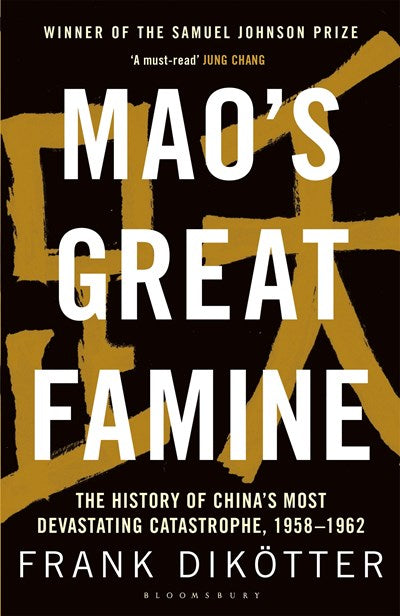An unprecedented, groundbreaking history of China's Great Famine that recasts the era of Mao Zedong and the history of the People's Republic of China. In Mao's Great Famine, Frank Dikötter has created the authoritative, riveting account of Chinese history during the Great Leap Forward. As Dikötter makes clear, Mao imagined the Great Leap Forward transforming China into a superpower, but the result was quite the opposite. It became the site not only of "one of the most deadly mass killings of human history,"--at least 45 million people were worked, starved, or beaten to death--but also of "the greatest demolition of real estate in human history," as up to one-third of all housing was turned into rubble. The experiment was a catastrophe for the natural world as well, as the land was savaged in the maniacal pursuit of steel and other industrial accomplishments.
In a powerful meshing of narrative drive and exhaustive research in Chinese archives, Dikötter links up what happened in the corridors of power--the vicious backstabbing and bullying tactics that took place among party leaders--with the everyday experiences of ordinary people, giving voice to the dead and disenfranchised. His magisterial account recasts the history of the People's Republic of China.

